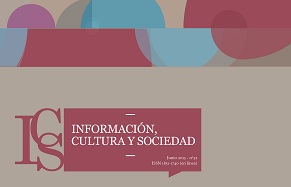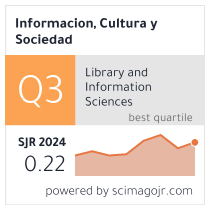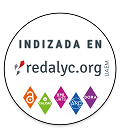Reading, library and social inclusion: the importance of promoting reading in riverside communities in Amazonas, Brazil
Abstract
Reading is a key factor for life in society, yet there are people who have not appropriated this habit. This theme has been the focus of various research and academic and scientific events, always with the intention of making it accessible to all. Brazil is known for its huge extension, but suffers from inefficiency in the implementation of this type of projects. The State of Amazonas occupies the largest land area of the country; in addition, the river transport is the only way to access to many communities. The article describes developed activities with the intention of bringing the reading to the riverside communities in an attempt to democratize access to books and reading in the absence of public libraries, contributing to the process of informational inclusion in the current society of information and knowledge where the issue of reading is a challenge even if it is an essential condition, there are illiterate people who need to be included in order to guarantee their participation as citizens.Downloads
References
Carvalho, J. M. y J. D. Cavalheiros. 2013. Acesso à leitura para os povos ribeirinhos do baixo amazonas.
En Anais do VI Congresso Latino Americano de Compreensão Leitora. Formosa: Universidade Estadual de Goiás. p. 277-285 < http://www.anais.ueg.br/index.php/ConLaCol/article/download/2607/1916>. [Consulta: 26 abril 2016].
Civallero, Edgardo. 2013. ¿Qué es la bibliotecología progresista?: una aproximación básica. 13 p. < http://eprints.rclis.org/18157/1/Que%20es%20la%20bibliotecologia%20progresista.pdf>. [Consulta: 26 abril 2016]
Cunha, Vanda Angélica da. 2011. Incentivo ao hábito de leitura como alicerce para o desenvolvimento humano. En Ponto de Acesso. Vol. 5, no. 2, 78-87.
Fabre, D. 2011. O livro e sua magia. En R. Chartier. Práticas da leitura. São Paulo: Estação Liberdade. p. 201-228
José, Elias. 2007. Literatura Infantil: ler, contar e encantar crianças. Porto Alegre: Mediação.
Kleiman, Â. 1989. Texto e leitor: aspectos cognitivos da leitura. Campinas, São Paulo: Pontes.
Marinho, R. R. 1993. Leitura: um caminho para a cidadania. En Transinformação. Vol. 5, no. 1, 2, 3, 90-94.
Martins, Maria Helena. 2011. O que é leitura. São Paulo: Brasiliense.
Meneses Tello, Felipe. 2009. Bibliotecología social y política I. < http://www.ofaj.com.br/colunas_conteudo.php?cod=440>. [Consulta: 26abril 2016]
Parada, Alejandro E. 1999. Bibliotecología y responsabilidad social. En Información, cultura y sociedad. No. 1, 65-75.
Petit, Michèle. 2015. Leer el mundo. Buenos Aires: Fondo de Cultura Económica.
Suaiden, Emir José. 2002. El impacto social de las bibliotecas públicas. En Anales de documentación. No. 5, 333-344.
Suaiden, Emir José. 2007. A dimensão social do conhecimento. En Scire. Vol. 13, no. 1, 21-31.
Suaiden, Emir José. 2014. La sociedad de la información y la inclusión productiva. 16 p. Trabajo presentado en
XIX Encuentros Internacionales sobre Sistemas de Información y Documentación, realizado en Zaragoza, España, del 1 al 3 de octubre de 2014.
Tasat, J. 2014. Políticas culturales públicas: culturas locales y diversidad cultural desde un enfoque geocultural. Tres de Febrero, Buenos Aires: Universidad Nacional de Tres de Febrero.
Torres, C. A. 1979. Conscientizar para libertar. En P. Freire. Consciência e história: a práxis educativa de Paulo Freire. São Paulo: Loyola.
Yunes, Eliana. 1990. Estrategias para el fomento de la lectura en América Latina en los años 90: el caso de Brasil. En Senderos hacia la lectura: memoria del primer Seminario Internacional en torno al Fomento a la Lectura. México, DF: Instituto Nacional de Bellas Artes, p. 49-56.
Authors publishing in this journal acknowledge the conditions below:
- Authors retain the copyright of their work while they transfer the right of the first publishing to the journal, under the Creative Commons Attribution-ShareAlike 4.0 International (CC BY-SA 4.0) Licence, which allows third parties to reproduce them under the condition that express mention is given to the author and to its original publication in the journal.
- Authors may enter into other contractual and independent arrangements for the non-exclusive distribution of the version of the article published in this journal (for instance, it can be published in an institutional repository or in a book). In any case, an express mention should be given to its first publication in the journal.
- It is permitted and encouraged to publish online the articles (for example, on institutional or personal pages).


























